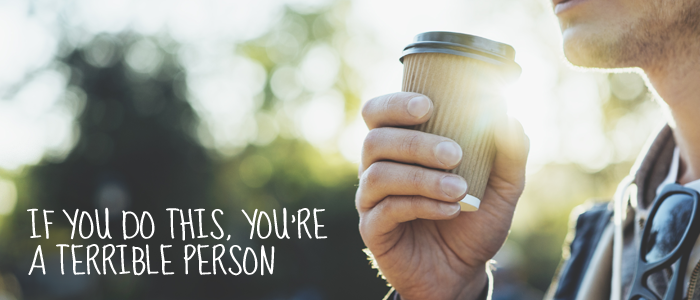29 June 2017 More Behavioural Change in the War on Waste

I bloody loved ABC’s War on Waste.
So much so I wrote 1,000 words on the potential impact of a petition to relax cosmetic standards on bananas. Apparently it wasn’t enough.
The show dives into a range of issues in sustainability – each one an insightful look at different strategies to change behaviour (or at least tries to). Here’s four ways governments, business and individuals are attempting to influence our decisions and how we act:
1. Recycling Soft Plastics
Did you know you can recycle soft plastics? Waste like glad wrap, bread bags and chip packets can be taken to most supermarkets and recycled along with your plastic shopping bags.
The primary challenge here is awareness. As we see on the show a whole street of families change their behaviour once they become aware of the solution. My household did too after watching.
Our industry tends to get caught up in whatever’s trendy at that moment sometimes overlooking the simple answer – in this case: good old-fashioned awareness building. Particularly with so much data on our hands now, we’re increasingly spending time looking at the conversion end of a funnel and not the top.
Dare I say, to efficiently address this problem on scale with speed… we need television?
2. Banning Plastic Bags
One lever you can pull to influence behaviour is to remove barriers. Make something easier and they’re more likely to do it.
Or in the case of getting people to stop using plastic bags, add barriers and make it harder. That’s the focus of the Ban The Bag movement. Recognising that charging people for bags (in some states they’re no longer free) hasn’t had enough of an impact – to properly address this problem we need to go harder. The answer seems to be adding the biggest barrier of all: making plastic bags flat out illegal.
3. Killing Coffee Cups
Another tool for behaviour change is adding incentives. Coffee cups are a problem in Australia because their plastic lining can’t be recycled. As a result they end up in landfill. To address this, some cafes are leading the charge by offering discounts to customers who bring their own cup.
This issue has an interesting secondary problem too – people think coffee cups can go in the recycling bin, contaminating whole containers. Yet again another problem we can fix with awareness (although this one could be more tactical, with messages on bins or the cups themselves).
At work we’ve taken the barrier approach. Our coffees are ordered through an automated Facebook Chatbot (advertising, amirite!?). We’ve made it harder (actually, impossible) by removing the option for a paper cup from the system altogether. Problem solved.
4. Slowing Fast Fashion
Another issue highlighted in the show is the ‘fast fashion’ trend and the six thousand kilograms of clothes we toss away every ten minutes in Australia.
H&M and other retailers are doing their bit, offering vouchers for returned items to recycle and reuse them for those in need. But as host Craig Reucassel points out, this strategy really only makes things worse, incentivising fast fashion to be faster. No solution to this one yet.
Man it would be fun to write strategies for any of these problems.

No Comments